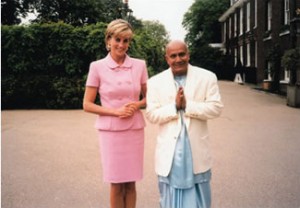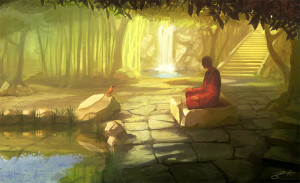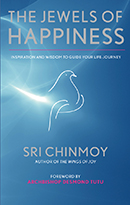Every day there is only
One thing to learn:
How to be honestly happy.

Quotes on Happiness
Most folks are as happy as they make up their minds to be.
Abraham Lincoln
Happiness is when what you think, what you say, and what you do are in harmony.
Mahatma Gandhi
Happiness depends upon ourselves.
Aristotle

Thoughts on Happiness by Thomas Jefferson:
Our greatest happiness does not depend on the condition of life in which chance has placed us, but is always the result of a good conscience, good health, occupation, and freedom in all just pursuits.
It is neither wealth nor splendor; but tranquility and occupation which give you happiness.
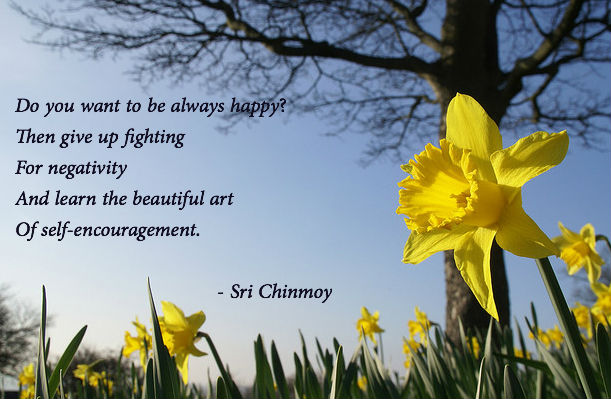
Nothing brings me more happiness than trying to help the most vulnerable people in society. It is a goal and an essential part of my life – a kind of destiny. Whoever is in distress can call on me. I will come running wherever they are.
Princess Diana
Thousands of candles can be lighted from a single candle, and the life of the candle will not be shortened. Happiness never decreases by being shared.
Buddha
Whoever is happy will make others happy.
Anne Frank, The Diary of a Young Girl
Happiness is the settling of the soul into its most appropriate spot.
Aristotle
Happiness does not come from without, it comes from within.
Helen Keller
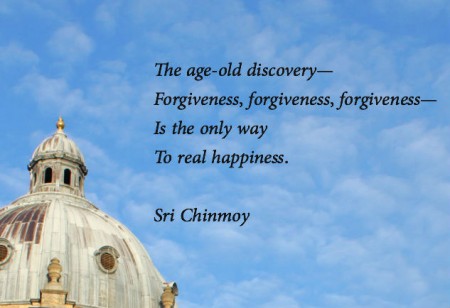
Reflections on Happiness by Mother Teresa:
Let no one ever come to you without leaving better and happier. Be the living expression of God’s kindness: kindness in your face, kindness in your eyes, kindness in your smile.
If you find serenity and happiness, some may be jealous. Be happy anyway.
I see God in the melody of Nature. Sometimes I see a flower, just a bud ready to bloom, and I call Martita, “Come with me! See, can you see God?” I am with Nature constantly. That is why I am so happy, so happy.
Pablo Casals, legendary cellist
in an interview with The Jewels of Happiness author Sri Chinmoy ((From the book Four Summit-Height-Melodies, made available to share under a Creative Commons license))
It’s easy to mine the land and fish the seas and get rich. Yet we believe you cannot have a prosperous nation in the long run that does not conserve its natural environment or take care of the wellbeing of its people.
Thakur Singh Powdyel
Education minister of Bhutan, the first country to establish a national happiness index.
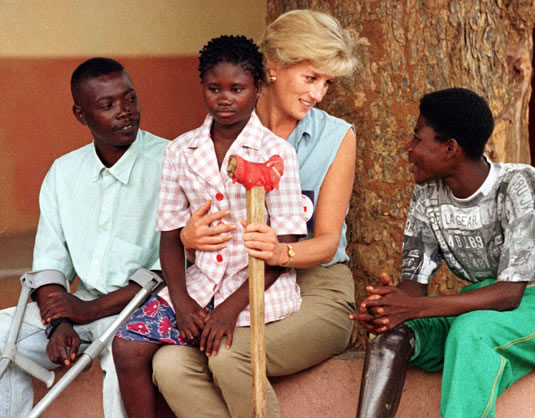
Happiness in Giving: Reflections by Princess Diana
Diana, Princess of Wales, touched the heart of humanity with her life-long dedication to the suffering children and elderly of the world. Princess Diana traveled the globe to advocate for homeless youth, youth who fall victim to drug abuse, children with AIDS or leprosy, and children affected by landmines. Upon her untimely death in 1997, the world joined together not only to pay homage to her life’s work, but in collective recognition of each individual’s role in offering service to their fellow human beings.
I am not a political figure. The fact is I am a humanitarian figure. I always have been and I always will be.
“Only do what your heart tells you.”
Everyone needs to be valued. Everyone has the potential to give something back if only they had a chance.
“Carry out a random act of kindness, with no expectation of reward, safe in the knowledge that one day someone might do the same for you.”

Mother Teresa says goodbye to Princess Diana after the Princess visited her Missionaries of Charities House in Bronx, New York, 19th of June, 1997.
I think the biggest disease the world suffers from in this day and age is the disease of people feeling unloved. I know that I can give love for a minute, for half an hour, for a day, for a month, but I can give. I am very happy to do that, I want to do that.
“ [Diana] was an exceptional and gifted human being. In good times and bad, she never lost her capacity to smile and laugh, nor to inspire others with her warmth and kindness. I admired and respected her – for her energy and commitment to others, and especially for her devotion to her two boys …”
– The Queens message, 5th of September, 19972
Words of Princess Diana assembled by Jamini Young.
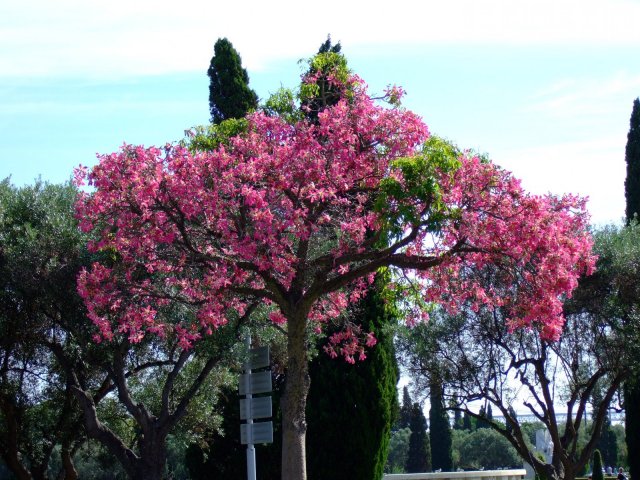
Four Most Important Things: An Indian Story
Today I attended the launch of a movie about how Auckland became a Peace City. It was such an important and momentous decision when New Zealand decided to officially become a nuclear-free country, and the movie documented this incredible journey. Included in the screening were moments from last year’s wonderful ceremony celebrating Auckland’s dedication as a Peace City, in which my friends and I played a small part. This inspiring afternoon got me thinking about what is really important in life. Obviously: Peace. And peace means so much more than simply the absence of war.
A few months ago, I was given an excerpt of one of Sri Chinmoy’s books to read. Often we read things once and then file them away somewhere, but I have enjoyed keeping this piece of paper on my desk at home ever since. In this excerpt, Sri Chinmoy relates a story ((“Four most important things in life” from India and Her Miracle-Feast: Come and Enjoy Yourself, Part 9)) about an Indian spiritual master named Balananda who lived 100 years ago. In the story, he tells his students: “Each of you needs to develop four most important things in your life.” Balananda then relates the following four qualities:
1. Tolerance
“You need to develop the capacity to tolerate the world and to tolerate your own life.”
The movie about peace in New Zealand and the country’s struggle to become nuclear-free showed some footage of horrific effects from the Hiroshima bombing. It would be very easy to become devastated by this and totally discouraged by such waste and sadness. Instead, I choose a more positive approach – to tolerate the world, knowing that every day we as humanity are learning to do better and be better, simply because daily we are becoming more aware and knowing better. One of Oprah’s favourite sayings is “When you know better, you do better.” A historical and momentous film such as this one helps to increase people’s awareness of the great importance of peace in today’s world. And of course world peace can never be achieved until we each have inner peace first.
This leads us to the second half of the above important statement: “…and to tolerate your own life.” While we are trying to grow and become better people, we have to remember to be kind to ourselves, to remain patient and understanding. Tolerate things in the beginning with the growing hope that transformation is occurring gradually, and the faith that each change in our life comes at the right moment.
2. Sacrifice
“You need to develop the capacity to sacrifice everything that you have and everything that you are.”
Whoa! This seems like a big one. But upon contemplation… is it really? What if everything that you have is a fearful life, and everything that you are is a muddle of negative thoughts? Well, these things certainly seem worth sacrificing. I feel that this is what the story is trying to portray. That we need to develop the ability to let go of all that is unlit, undivine, negative or unillumined inside of us. This is a sacrifice I am willing to make, for my own progress and happiness.
3. Silence
“You need to cultivate the capacity to remain silent even when you are mistreated mercilessly, without rhyme or reason, by a hostile world.”
Hmmm….remain silent? This is a hard one. I know it is true and I know it is the best response sometimes, but I don’t always remember in the moment to practice silence. Nobody likes to be mistreated without reason. We need to remain silent for some time to bring forth this higher response of deep humility and wisdom. It is too easy to burst out with an angry or emotional reaction. But to pause for a moment, to breathe deeply and remain silent is a noble act of strength. I will try practising this positive response more.
4. Equanimity
“You need to develop the capacity to remain calm, quiet and tranquil without being completely shattered when you lose in the battlefield of life or extolling yourself to the skies when you succeed in the battlefield of life.”
When I read this… I see hidden within the above sentence the qualities of strength, courage, determination, never giving up, inner peace and wisdom, lack of ego, humility, self-effacement. Wow!
But are all of these four things actually possible to do in one lifetime? Sri Chinmoy’s story ends with the spiritual master encouraging his students by answering this question with a resounding “Why not? I too was once like you. You can do this, provided you always do the right thing at the right time, with the help of the right Master.”
That last sentence obviously reminds me of my own teacher, Sri Chinmoy, and that my life of spiritual growth and transformation is all the time leading me closer towards an ever-increasingly fulfilling and happy life. However, even if you do not have a spiritual teacher of your own, you will be able to begin your spiritual journey simply by reading the writings of an illumined author such Sri Chinmoy, whose book The Jewels of Happiness contains divine truths that can resonate within your own heart and lead you to greater joy and self-discovery.

Things I have learnt from life
Sri Chinmoy, the author of The Jewels of Happiness, taught a path of meditation and spirituality which is often called The Path of the Heart. I have learnt that this also means the “path of happiness”! If we are in our heart—i.e the centre of our being inside our chest, where we can feel the core of our existence—then we are living in happiness, like a child. Young children are all the time in their heart. What does this mean? It means they are totally “in the moment” and at the same time filled with many other divine qualities.
The qualities of a young child
What are the qualities of a young child? Spontaneity, unconditional love, happiness and joy, purity and innocence, giving, smiling, free expression, dynamism and energy, beauty and radiance, fearless, open-hearted, goodness—just being who they are!
The list could go on and on. Well, guess what? These qualities of a child are also the divine qualities of your own heart! I have learnt that the true essence of each one of us is all of the above.
We are all beauty, love, joy, happiness and goodness. This is at the core of our very being. And we were all young children once too! So this reality, these good qualities are all still inside of us, waiting to be re-discovered and revealed through the power of stillness of thought, through your daily meditation practice.
Experience is my teacher
Sri Chinmoy has written a powerful aphorism and song as follows:
Experience is my teacher,
I love him and I love him.
Realisation is my tutor,
I love plus I need him. ((Sri Chinmoy, A Soulful Cry Versus A Fruitful Smile))
In our lives, we all learn through experience. We’ve been doing it since we were children. I have always been a strong believer that experience is my teacher, and as a result I have learned many lasting—and sometimes painful—lessons this way.
However, once you are on a spiritual path, you have a new and additional teacher. I have been a student of Sri Chinmoy, who has realised the highest states of meditative awareness, for over 17 years now. Instead of just learning through experience, I have been able to speed things up on the “auto-bahn” express of life.
Not banging my head against the wall
Previously, before I was meditating or living consciously, I learned my lessons primarily through having experiences with what’s known as the “head-banging” method. I’m sure you know what I mean… You go through something and try to learn from it by banging your head against a wall. Then, if you haven’t truly learned the lesson, you find yourself in a similar situation with new players in the game. So you bang your head again—trying to learn that first lesson.
by banging your head against a wall. Then, if you haven’t truly learned the lesson, you find yourself in a similar situation with new players in the game. So you bang your head again—trying to learn that first lesson.
It’s possible for some to live their whole lives using this method, just trying to learn one particular life-lesson. When living consciously, you can make progress so much faster—many lifetimes’ worth of lessons in a few short years! This can be accomplished through meditating and listening to your inner guide.
Realisation is my tutor
Now, look at the second line of the aphorism above: “Realisation is my tutor. I love plus I need him.” The difference between just experiencing something, and experiencing it with an increasing realisation or spiritual awareness is like the difference between having a teacher and having a private tutor. The teacher outwardly passes or fails you; the tutor inwardly works one on one with you and your circumstances—lovingly guiding, encouraging and inspiring you to do and be your best. You begin living with your eyes and your heart wide open, filled with the delight of being.
I know now which way I’d rather learn! 🙂
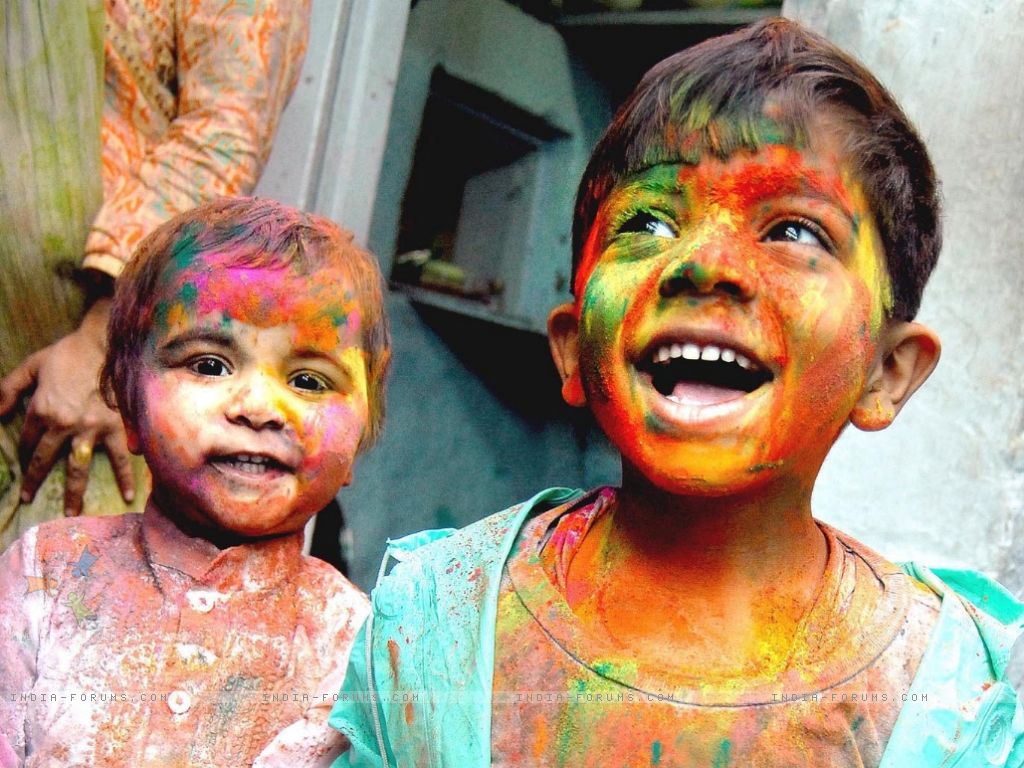
5 Things We Can Learn from Children
“The child is father of the man” wrote William Wordsworth in one of his immortal poems. This poetic paradox offers much truth. Childhood is the oldest part of our life and precedes everything that comes after it. Yet in many respects our childhood is not only the oldest part of our life, it is also the wisest. For what is wisdom, if not a shortcut to happiness? And who is always happy, if not an innocent child? If we would learn to value the innate wisdom of children, the world would soon become a much better and happier place. Here are five things we can learn from children.
1. Live in the heart
 One of the main differences between children and adults is that adults live in the mind, whereas children live in the heart: That is why they are so cheerful, optimistic and full of energy. The heart is the source of joy, love, peace and oneness. It is also the fount of spontaneity. Because children live in the heart, they are always spontaneous. They do not suffer from self-doubt and insecurity the way adults do. Children charm us precisely because they are all heart. They inspire us to go deep within and bring our own heart-qualities to the fore. This we can do through prayer and meditation. If we unearth our forgotten childlike heart we will discover true and lasting happiness.
One of the main differences between children and adults is that adults live in the mind, whereas children live in the heart: That is why they are so cheerful, optimistic and full of energy. The heart is the source of joy, love, peace and oneness. It is also the fount of spontaneity. Because children live in the heart, they are always spontaneous. They do not suffer from self-doubt and insecurity the way adults do. Children charm us precisely because they are all heart. They inspire us to go deep within and bring our own heart-qualities to the fore. This we can do through prayer and meditation. If we unearth our forgotten childlike heart we will discover true and lasting happiness.
2. Be in the moment
 One of the reasons children are often so happy is that they live fully in the present moment. When a child plays with a toy, his toy becomes his whole world. He has eyes for nothing else. As adults our mind is always roaming, thinking of the past or the future. Rarely it is in the here and now. But that’s where life is happening. Past and future are both illusions. As a wise person once wrote: “Yesterday is history. Tomorrow is a mystery. Today is a gift. That is why it is called the present.” Children teach us that happiness lies nowhere else but in the here and now.
One of the reasons children are often so happy is that they live fully in the present moment. When a child plays with a toy, his toy becomes his whole world. He has eyes for nothing else. As adults our mind is always roaming, thinking of the past or the future. Rarely it is in the here and now. But that’s where life is happening. Past and future are both illusions. As a wise person once wrote: “Yesterday is history. Tomorrow is a mystery. Today is a gift. That is why it is called the present.” Children teach us that happiness lies nowhere else but in the here and now.
3. Have faith
 To a child his parents are his all, his entire world. A child feels that his parents are perfect. That is why he has implicit faith in them. His parents are the source of all wisdom, and by listening to his parents he gets abundant joy. He knows he does not have to worry because his parents protect him and take care of him. Because of his simple faith, the child is always joyful and happy. When we become spiritual seekers, we come to realize that we have a cosmic, divine Mother and Father, who take care of us at every moment. We can rely on these divine Parents for everything, just as we relied on our earthly parents in our childhood. We can regain that spontaneous feeling of faith by remembering the innate faith we had in our parents when we were children. Faith gives us confidence, and confidence brings joy.
To a child his parents are his all, his entire world. A child feels that his parents are perfect. That is why he has implicit faith in them. His parents are the source of all wisdom, and by listening to his parents he gets abundant joy. He knows he does not have to worry because his parents protect him and take care of him. Because of his simple faith, the child is always joyful and happy. When we become spiritual seekers, we come to realize that we have a cosmic, divine Mother and Father, who take care of us at every moment. We can rely on these divine Parents for everything, just as we relied on our earthly parents in our childhood. We can regain that spontaneous feeling of faith by remembering the innate faith we had in our parents when we were children. Faith gives us confidence, and confidence brings joy.
4. Never give up!
 When a child is learning how to walk, he takes a few steps and then falls down. Immediately he gets up, walks a few steps and falls down again. But although he may fall down a hundred times before he finally learns how to walk, the child does not feel that it has failed when it falls down. He knows that falling down is part of the process of learning how to walk. Because his so-called failures do not discourage him, the child continues trying until he is successful. We can all learn from this example by taking our so-called failures as stepping stones to our ultimate success. “Failure is the fast approaching train
of the greatest success,” Sri Chinmoy wrote. If we take a “never give up” attitude, we can be successful in anything we undertake. Since we all learned how to walk, we all mastered this attitude at a very tender age. Let the child again be the father of the man.
When a child is learning how to walk, he takes a few steps and then falls down. Immediately he gets up, walks a few steps and falls down again. But although he may fall down a hundred times before he finally learns how to walk, the child does not feel that it has failed when it falls down. He knows that falling down is part of the process of learning how to walk. Because his so-called failures do not discourage him, the child continues trying until he is successful. We can all learn from this example by taking our so-called failures as stepping stones to our ultimate success. “Failure is the fast approaching train
of the greatest success,” Sri Chinmoy wrote. If we take a “never give up” attitude, we can be successful in anything we undertake. Since we all learned how to walk, we all mastered this attitude at a very tender age. Let the child again be the father of the man.
5. Play the game of life
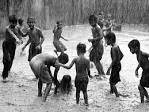 To children, everything is a game. And their game is played purely for enjoyment. Children are not concerned with winning or losing, they only want to have joy. By watching children play, we can learn something valuable: Life itself is a game in which we are the players. When we take life too seriously, we often suffer and feel miserable. But if we realize that life is a game, we can see things in perspective. The purpose of a game is not winning or losing, but playing well and having fun. So we will not be discouraged and depressed when we experience failure. And conversely, we will not be bloated with pride and arrogance if we are successful. We will take both failure and success as valuable experience, teaching us how to play the game of life well. Like children we will play for the sake of playing. Therein lies the secret key to enduring happiness.
To children, everything is a game. And their game is played purely for enjoyment. Children are not concerned with winning or losing, they only want to have joy. By watching children play, we can learn something valuable: Life itself is a game in which we are the players. When we take life too seriously, we often suffer and feel miserable. But if we realize that life is a game, we can see things in perspective. The purpose of a game is not winning or losing, but playing well and having fun. So we will not be discouraged and depressed when we experience failure. And conversely, we will not be bloated with pride and arrogance if we are successful. We will take both failure and success as valuable experience, teaching us how to play the game of life well. Like children we will play for the sake of playing. Therein lies the secret key to enduring happiness.

Forgiveness: The Royal Road to Happiness
Only two miracles are worth seeing:
The miracle of loving
And the miracle of forgiving.
– Sri Chinmoy 1
Spiritual leaders from many traditions have urged us to forgive others for their wrongdoings, and also to forgive ourselves for our own mistakes. A story about Lord Buddha recounts that he was sitting with his followers when a critic came up to him and spit on him. The Buddha’s followers wanted to punish the man, but the Buddha merely asked him what he was trying to say. The next morning the same critic returned and threw himself at the Buddha’s feet.
Resentment and Anger: The Heavy Load
Why do we have to be reminded to forgive? It is because we do not find it easy to forgive; it does not please us to forgive; it does not come naturally to forgive. Indeed, as the above quotations indicates, forgiveness is a miracle. Yet, if we are wise, we want to forgive – not only because it is morally right, but also because it is essential to our own well-being. It is a heavy burden, observes Sri Chinmoy, to harbor the resentment and anger that accompany failure to forgive. Sri Chinmoy asks us to wonder how we can run towards our important goals when we carry such a heavy load. 2
Father, forgive them, for they know not what they do.3
Lincoln’s Act of Forgiveness — A Victory!
One piece of the history of the great American president Abraham Lincoln shows how the practice of forgiveness can lead to the achievement of important goals: Lincoln was in the running for nomination to the Senate from Illinois in 1858. In the political system of the day, senators were nominated by state legislatures, not by popular vote as they are today. Lincoln had 41 votes, and another politician — Lyman Trumbull — had only 5. But the leader of Trumbull’s faction refused to yield to the larger group.
To promote the good of his party, Lincoln removed his own name, allowing Lyman Trumbull to become Senator from Illinois. Lincoln attended Trumbull’s victory party with a big smile and a warm handshake for Trumbull. When the convention convened to select the presidential nominee in 1860, the former leader of Trumbull’s faction was one of Lincoln’s most important Illinois supporters! As we now know, Lincoln was nominated and won the election! 4
The Workings of the Mind
Unfortunately, when I look into the workings of my own mind, I find that, rather than forgiveness, what seems to come naturally is a kind of morbid dwelling on the hurts that I have received — a long-simmering pot of resentment. The ladle to stir this pot is always handy, and when in a low mood, or bored, or the recipient of a particularly grievous insult, I pick up the ladle with relish. I imagine that I am not alone in this unfortunate tendency. What can we do to put the lid on this pot, to nudge ourselves towards the enactment of the miraculous? This brief article can be regarded as documentation of a work in progress: Lack of forgiveness has been a big issue for me, and I am hoping that by addressing it I will make some progress towards becoming more forgiving.
To become a happiness-fountain
I must forgive those
Who ruthlessly hurt me
Every day.
– Sri Chinmoy 5
Since lack of forgiveness is closely related to anger, when I feel “righteously” angry, I am far from forgiving. In his book entitled Anger: Wisdom for Cooling the Flames, the Zen Buddhist monk Thich Nhat Hanh advises that whenever we feel angry, we should recognize that right underneath the feeling of anger is the feeling of hurt.6
In my experience this has turned out to be always true; and although a little painful to admit, it is usually helpful to me in my efforts to throw cold water on the flames. When we feel that others have done us wrong, my experience as Sri Chinmoy’s student suggests that we remind ourselves that, in their shoes, we would have done as bad or worse; this approach is also uniformly helpful.
Illumining Anger
Sri Chinmoy also says: “There are two ways to illumine anger. One way is to enlarge your heart. If you have been wronged, use your power of identification. Feel that it is you yourself, or an extended part of your own consciousness, that has done the wrong thing. The sooner you can rid yourself of the idea that somebody else has done something to you, the better off you will be.”7
Prayer and Meditation: Effective Guides
Prayer and meditation are, undoubtedly, two of the most effective guides to the royal path to forgiveness, since they are both conducive to enlarging the heart and making us feel that we are part of a larger whole. An older African-American woman, who lived in Birmingham, Alabama, during the sixties when a church with children inside was burned by white bigots, was talking on National Public Radio a few years ago about her family’s reaction to those events. She said that because the family prayed sincerely, they were able to forgive the perpetrators and include them in their prayers for forgiveness. In the face of shockingly unprovoked and unjust wrongdoing, this devout Christian family was able to enlarge their hearts enough to wish well to the attackers.
When we meditate, our mind is inundated with peace, and when we have peace of mind, we are in a position to conquer our anger. – Sri Chinmoy. 8
Meditation opens us to hearing the voice of our inner pilot, the part of us that most reliably leads us to illumined feelings and behaviors. Once, long ago, after a most painful telephone conversation with my ex-husband, I walked away from the conversation still feeling upset, and entered a large outdoor space where Sri Chinmoy was in silent meditation with a large group of his students. As I walked through the group to find a seat, just looking at the peaceful faces of my fellow students, without making any personal effort of my own, was enough to completely obliterate my angry and revengeful feelings!
Illumining Power of Meditation
There have been many, many times when I sat down to meditate with the awareness of a problem that seemed to be insurmountable, and either in the course of the meditation or within a few days, the solution presented itself, sometimes in an unexpected way. I admit, though, that my meditations do not always have the desired effect immediately. There have been times when I have not had a “good” meditation; there have been extended periods when I have meditated daily and yet the same problem has persisted and persisted.
So far, though, most problems have eventually yielded to the healing and illumining powers of meditation. My difficulties with forgiveness are bound to be surmounted by the same force.

Absolute Love – a poem
Connecting with All That Is,
Feeling a deep love for God,
Creating a place of Unity through Devotion,
Loving absolutely everything in our outer world
And feeling absolutely loved by everything existing in our inner world.
Pure and Divine Love flowing like crystal clear water,
Dissolving all impurities in the Ocean of Love,
An Inner feeling of connectedness to All,
Sail on the river of love to the Kingdom within,
The bliss of the Heart expands to touch Life,
An inner gate opens and upon entering
We experience a miraculous melding between
Our being and what we are devoted to.
A melding occurs between the personal and impersonal,
We reach a state of total Inner Peace.
To explain the quality of this state of Divine Love
Many beings have tried to do,
But it is always inadequate to try to fully understand without
Experiencing it:
Absolute Love.
…Experience it…Give it…Live within it…
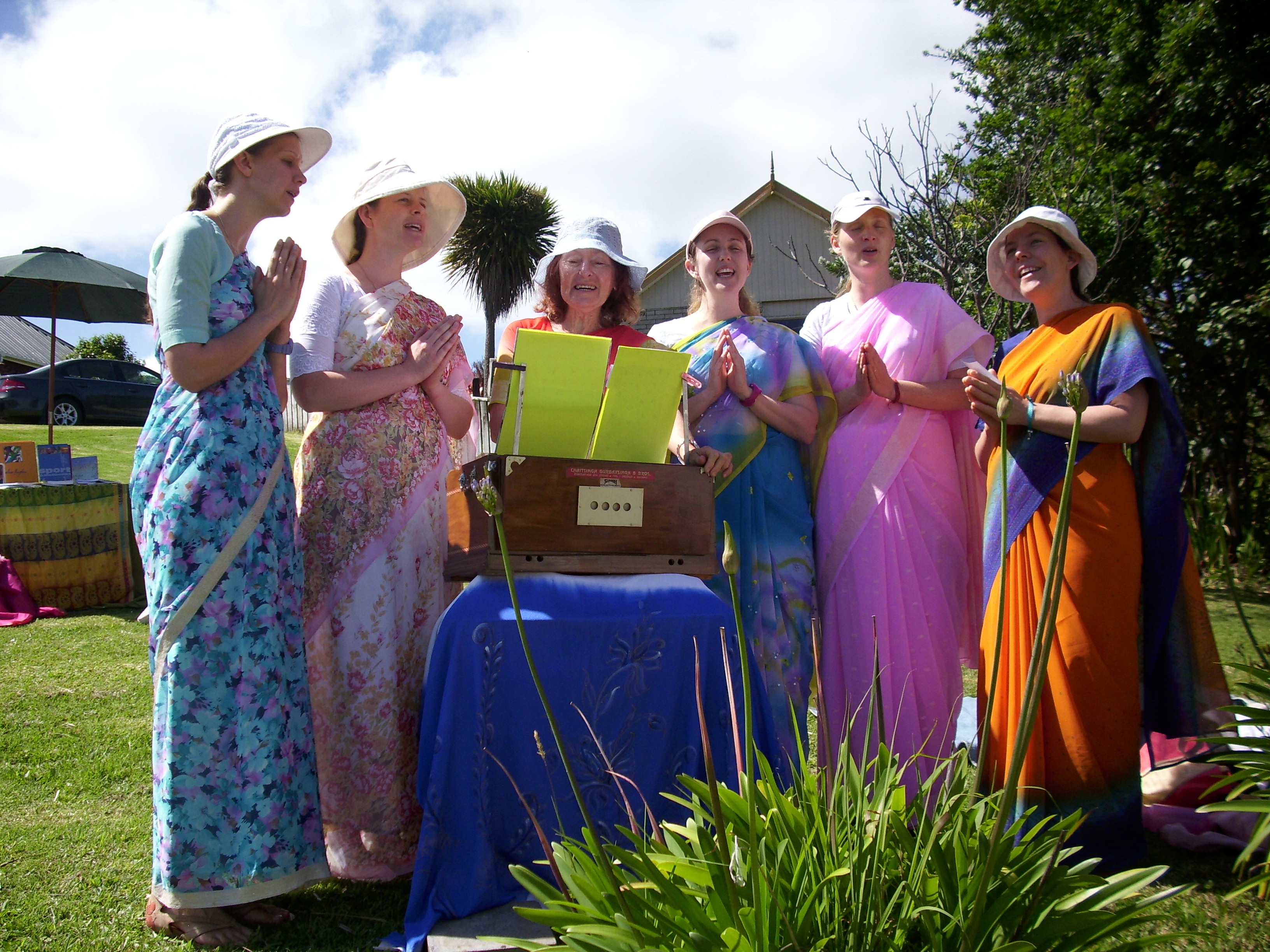
Why Singing is a Natural Happiness Booster
We all know it is true—when people are happy, they often whistle or sing spontaneously!
Some of the happiest memories in my life are when I have been singing—learning, practising or performing songs for a concert, perhaps. I often feel so happy whilst singing that I am moved to tears.
(Photo: Hridayinee (rt, in light blue) singing during a public outdoor concert)
Music that feeds the heart and soul
This singing needs to be of a special type of music: spiritual music that feeds the heart and stirs the soul. Have you ever heard a piece of music that just immediately lifted you up and carried you away from the earthly realm—something divine and beautiful, uplifting or joyful, peaceful or inspiring? Perhaps you have enjoyed singing this type of soulful music yourself.
For example, the songs composed by my teacher Sri Chinmoy—author of The Jewels of Happiness and himself a prolific, self-taught musician and composer—are the type of songs that really make my heart sing and my soul blissfully happy.
(Video: Swiss group Mountain-Silence sing a selection of Sri Chinmoy’s meditative songs)
Skip the sad songs
Let’s take this simple example: If you are having a depressing day for some reason, you could perhaps choose to put on some music to listen to. If you are feeling depressed and wallowing in this negative emotion, you may automatically choose some song that is emotional and sad and start crooning along to it. Well, guess what? This kind of music will only feed your downcast mood and prolong your depression. By identifying with this emotion, you are allowing your sad feelings to choose a sad song to listen to, which in turn increases your sadness, and the cycle continues.
Choose a different experience
BUT consider another option: What would happen if you were feeling a bit down or depressed and a higher part of you recognised this emotion without getting too caught up in it? You could therefore choose to have a different experience and perhaps listen to some uplifting spiritual music, or even better, you could try singing some soulful songs yourself! By choosing to do something positive like this, even when feeling sad, as I have experienced for myself, your mood can be lifted and changed very quickly, and with longer lasting results.
Singing—the happiness booster
A few days ago, I celebrated a long weekend here in New Zealand by travelling down south with friends to Christchurch for a three-day retreat of meditation, games and company. My teacher Sri Chinmoy affectionately liked to refer to such a get-together as a “Joy Weekend.” This particular weekend consisted of lots of good food, good company, meditation, runs or walks in nature, joy and laughter, and many beautiful singing performances and experiences. One of the three singing groups I was in chose to perform a medley of “happiness songs” by Sri Chinmoy—complete with clicking and clapping amongst the singing performance. It really gave me so much joy to sing these songs – just like a happy young child. The audience seemed to get much joy from hearing these as well. Singing does that to you. It is just such an easy, natural happiness booster.
These are the words by Sri Chinmoy of the three simple happiness songs we performed in Christchurch:
“Serve the crying earth, You will be happy.”
“Forgiveness is the only real happiness that lasts.”
“The children of happiness will create a new world.”
We are those children. Singing does make you feel like a child—in the heart-space, happy and free, simply living in joy. If we can be happy, we will be creating a new world.
Find the little opportunities and sing!
We cannot meditate 24 hours a day, but there are so many opportunities in our daily routines to simply sing a soulful, happy tune. You could sing in the shower (classic!), or whilst walking down the street, in the car travelling to work, or hiking in nature. This could be done with a friend or alone. The possibilities are great.

Hridayinee’s budgie, Joey
One last cute thing I would like to share with you. Tonight whilst cooking and cleaning in my home, I put on some music on shuffle as I pottered around. Suddenly, a voice memo began playing of my friend singing some of Sri Chinmoy’s songs with a harmonium. This friend used to live with my little budgie Joey (see the photo on the top), so when Joey heard and recognised my friend singing these songs, he suddenly got really happy and excited! He started chirping, tweeting, whistling and singing along with my ipod—loudly and full of joy! It really was very sweet.
Sing … sing a song!
Mother Earth has bountiful blessings to bestow upon us, and one of these is God’s creation of birds—who begin every day alive on this Earth by singing a beautiful morning prayer-song. I suggest you awaken early with the sunrise, listen to your neighbouring birds awakening with the dawn, and try to allow some time each day to sing your own happiness songs. I assure you, regardless of how your voice sounds, the simple act of singing will be a big happiness booster in your own life of aspiration and longing for a better world. 🙂

Getting started with Meditation
Meditation is a very simple subject. It is not about technique, but rather about letting go of thoughts and emptying the mind entirely.
Here are some simple tips to start:
1. Regularity is important. All meditation traditions emphasise the same thing—that it needs to become a daily habit. The best way to form that habit is to do it at the same time every day. Just as you are conditioned to eat at a certain time, after a few weeks you will soon also begin to feel an inner hunger for meditation at your appointed time.
The best time of day is immediately after you wake up in the morning—you are less likely to be disturbed, and also the inner peace you gain will be of tremendous value to you as you navigate the day ahead. Try setting the alarm clock 15 minutes earlier than normal in order to get your daily practise in.
2. Find a nice space. When you meditate in the same space every day, over time you create a very nice feeling there, and it will become much easier to meditate there. Find a corner of your room or a small space that feels right. This will be your own personal space for self-discovery.
Set up a low table with a clean cloth over it. Then you can place there anything that inspires you and encourages you on your inner journey—pictures of nature and vastness, inspirational sayings, a photo of a spiritual master, maybe a statue of the Christ or Buddha if you are religious—whatever connects you to that inner feeling of meditation. For concentration exercises, it is good to have some flowers and a candle.
You can sit there on a cushion, on a meditation stool or on a chair—whatever suits you. Ideally, you should sit about one metre back from the table, at eye level to the picture, flowers and candle. Find some incense that you like as well—this creates a special feeling and adds a little of the ritual and the sacred to your practice.
3. Music helps. Simple, meditative music—a bamboo flute, a single voice singing a slow, peaceful song—can surround us in an atmosphere of tranquility that quietens the mind, opens the heart. Every little thing like this will help us to get started.
4. Start small. As with any positive thing that you are hoping to turn into a daily habit, the most important thing is getting it off the ground. Starting with just five minutes a day can be much easier to maintain than half an hour. Quality in meditation is much more important than quantity. And for beginners—if you have managed to still the mind somewhat and connect with a sense of inner peace for even three out of those five minutes, then you can definitely give yourself a pat on the back.

5 Life Lessons We Can Learn From Nature
Everybody loves to get out into Nature. In New Zealand, where I live, we are fortunate to have much beauty and splendour of Mother Nature all around us. Have you ever contemplated what lessons in your own life Nature is trying to teach us? Here are a few I have discovered.
Divine Timing
Nature teaches us that for everything there is a season and the right timing. Sometimes in our life we want certain things to happen right now. It is hard to wait for the fruits of our actions and we expect results immediately. This is especially ingrained in us now with the fast results of the Internet, where you can look up questions and get instant answers. But the really good things in life – self-discovery, meditation, contemplation, self-transcendence – are not like instant coffee. They take time, practice and effort.
In Mother Nature’s natural cycles of weather and seasons, there is an all-important flow – the bitter cold of winter is followed by the blossoming beauty of spring. Then follows the warmth and light of summer, followed by the colourful changes of autumn. For everything there is a season and a reason. If we did not have cold winter, the wheat would not be able to grow strong. The seeds planted beneath the soil lie waiting to flourish. New birth occurs in spring in the flora and fauna around us. Try to follow the example of Mother Nature’s divine timing to increase your own capacity for patience. All good things come with time. There really is the right and special time in your own life for every event and achievement, both inner and outer.
Humility
Nature teaches us to be humble. There is a quiet strength in humility. It is not a passive quality. Humility is needed in our everyday lives in many encounters we have with others. Where most can we see this divine quality in Nature? Just take a good look at the green grass beneath your feet. Grass portrays humility, as countless pairs of feet, walk all over it every day. It doesn’t complain or wither away. In fact it usually springs back up, unharmed each time. How wonderful is it to walk barefoot on soft green grass? This is something that can be very healing to do and ‘earths’ you – giving you a feeling of replenishment and grounding in your being. Try it, and contemplate the humility of the grass. Oh, if only we could all increase this quality in our own nature, the world would be a more peaceful place to coexist.
Self-offering
In your own life, the quality of self-offering is most important. When you look at a mature tree, it stands straight and erect, with its countless leaves providing shelter for anyone who pauses beneath its branches – whether the homeless beggar or children playing. Then when the divine timing is right and the tree becomes laden with fruit, the branches bend down to offer this fruit to all. A tree embodies the quality of self-offering. It provides homes and shelter for animals, birds and insects, as well as offering shade and fruit to us humans. The Buddha sat beneath the great bodhi tree and reached his state of enlightenment there. Next time you walk through a park, breathe in the beauty of the trees and perhaps offer a moment of gratitude to them for teaching us the divine art of self-offering.
To be self-giving in your own life and to offer things, services, smiles to others unconditionally will make you happy.
Beauty in Simplicity
This is perhaps the most obvious thing we receive from Nature. As long as you are receptive to feeling it, and don’t just walk on by with your head down and your crowded thoughts in the puzzling world of the mind. Everywhere around us the beauty of nature resounds! When you take a walk, practice quieting the mind, focusing on your breath and really pausing to smell the roses. There is so much beauty all around us. Take time out to be in nature and experience the vastness and depth of the blue-green ocean. Enjoy the beauty in the simple and natural things in our environment.
Make time to catch the sunrise or sunset – glorious! Walk or run through a forest of trees and ferns – magical! Gaze at the vastness and beauty of the blue sky – uplifting! The possibilities are endless.
Renewal and Restorative Powers
Finally, search for healing in the natural powers around you. Nature teaches us much about how to renew and restore energy in ourselves. Take a healing walk and time to sit in a green forest. Plunge into the refreshing coolness of the salty ocean – so restorative for aching muscles. Breathe in the beauty and splendour of the sunset and contemplate the subtle colours of another of God’s great paintings across the sky. Above all, remember to take time in your life to renew and restore yourself – by replenishing your energy stores from Mother Nature herself.
Meditate in nature. Be happy. You are cradled in the strong embrace of nature all around you, and its Supreme Power is flowing through your life, taking care of every concern and flooding you with Grace and Light.

